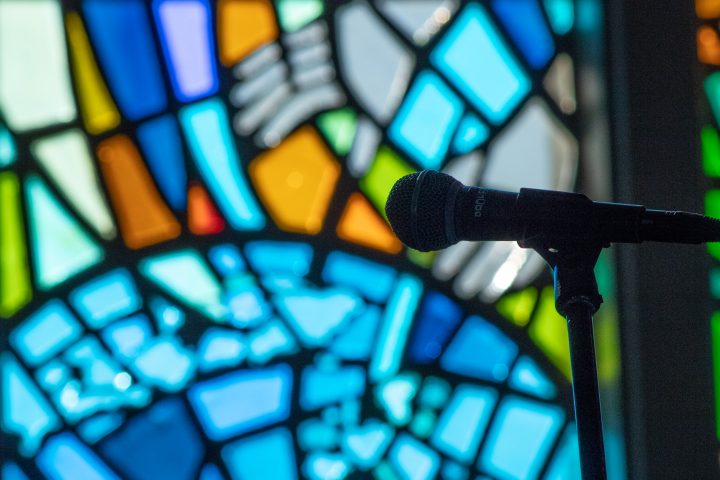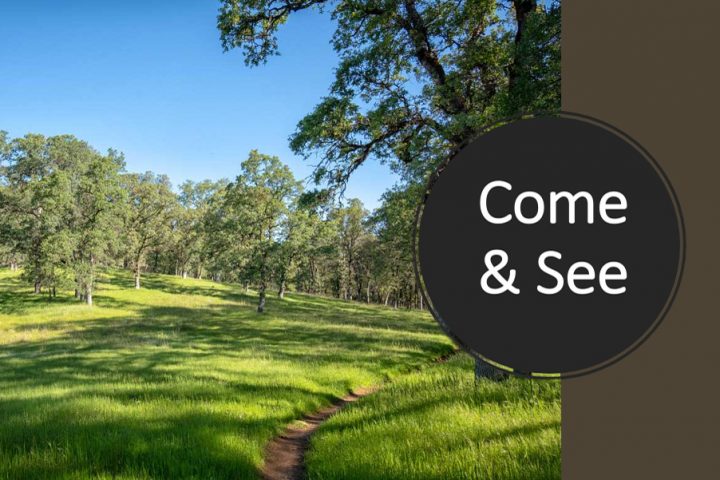Sermons from 2020
Seeing Through
In Roman mythology Janus is the god of “beginnings, gates, transitions, time, duality, doorways, passages, frames, and endings.” (Wikipedia) He is imaged as having two faces, one face looking to the past and one to the future. The ending of 2020 and the beginning of a new year provides an excellent time to pause and reflect, not only looking back and forward, but also looking within and around. Hopefully this Sunday will provide a space to do just that. Since God is in everything, we will pray for the vision to see through the events of our lives and find the God that is with us personally and who loves us beyond what we can imagine. I look forward to “seeing” you all!! John
Blessed are the Pure in Heart: Simeon and Anna
Matthew 5:8, Luke 2:22-40
This Sunday is our last Sunday of Advent, the last Sunday before Christmas! Advent is a time of waiting, of longing, of hoping. What do you find yourself longing for this week before Christmas? Perhaps it is gifts? Perhaps it is a vaccine? Perhaps it is a return to the ordinary? Whatever it is, we all know that waiting is difficult. Especially in a culture expecting instant gratification, waiting is not fun. In our text this week, we meet Simeon and Anna who are waiting, waiting for God to bring salvation and redemption. But, more importantly, these two characters, who demonstrate a purity of heart, show us how to wait well. Are you waiting well this Advent season?
Blessed are Those who Hunger and Thirst: The Shepherds and The Magi
Luke 2:8-20, Matthew 2: 1-12
During the Christmas season, I look forward to singing Christmas carols, giving and receiving gifts, and lots of food in a large family gathering! This year, however, Christmas will look very different for many of us. Perhaps this will cause us to re-examine what we really hunger for during this season. Christmas is, after all, a celebration of our Lord Jesus Christ, and what better time than now to focus on Him, encountering Jesus in a special way in our prayers, devotions, and activities?
This Sunday, we are going to meet two groups of people that truly encountered Christ on Christmas. These people sought for Jesus purposefully and with excitement because they were hungry and thirsty for the right thing – a genuine relationship with God. They were transformed by the encounter and were filled with great joy. This Sunday, we’ll visit the story of the shepherds and the Magi on their journey of faith to meet Jesus. See you then!
Blessed are the Meek: Joseph and Mary
Luke 1:26-55; Matthew 2
This Sunday we will continue our advent series focusing on four pairs of people in the infancy narratives of Matthew and Luke. While our world continues to fixate our attention on the rich and powerful, the focus of God’s kingdom is upon the poor and the marginalized, who through their suffering have become humble and hopeful, waiting for the kingdom of God.
Last week Bernard spoke on Zechariah and Elizabeth, who received the news from the angel Gabriel that they would bear a son even in their old age. This week Gabriel is sent to Mary and Joseph with even more remarkable news, but it comes with a price few would be willing to pay. Will they hesitate, waver, or ask for sign like Zechariah? Though you already know the answer, their obedience is designed to galvanize our faith and draw us into the wonder of Christ being formed in us.
Blessed are the Poor in Spirit: Zechariah and Elizabeth
Luke 1:5-25
Advent is a season of waiting. Israel had been waiting a long time for God to do something, to “rend the heavens and come down.” We also are in a season of waiting: for the vaccine, for the pandemic to be over, to be allowed to gather in person, to travel. Our Advent series this year looks at four pairs of characters: Zechariah and Elizabeth, Joseph and Mary, the shepherds and the magi, Simeon and Anna. Some of them had been waiting a long time. We will also consider these characters in conjunction with the beatitudes. Whose is the kingdom of heaven? How should we live in this time of waiting?
For the Life of the World
John 6:41-71
We finish Jesus’ Bread of Life discourse this week. Jesus goes deeper into what it means to keep coming and keep believing in him. His language is arresting as he talks about ingesting his flesh and blood. The shocking language offends many of his disciples, causing them to turn away. Yet the language he uses speaks to us taking his life into ours so that his life becomes our life, that we may abide with each other and share life together. What an incredible invitation to us – the living God wants to share life with us!
And, of course, this text looks forward to our identifying feast, communion. Although it is not the first Sunday of the month, we will take communion together at the end of the service. For those of you at home, I invite you to prepare elements ahead of time which represent the body and blood of Jesus (the elements do not need to be special). For those of you at our live parking lot service, we will serve pre-packaged elements to you.
The Bread of Life
John 6:22-40
Jesus says, “I am the bread of life.” It sure is a strange way to talk about yourself, isn’t it? I am bread? I could understand if he would have said maker of bread, or baker of bread or giver of bread. But, I am bread? A person is bread? Really? No one ever spoke like this! Come this Sunday as we explore this famous saying by Jesus.
A Blueprint for Revival
John 17:20-26
In John 13-16 we have Jesus teaching and training his disciples to go out in the world and represent him. But in John 17, Jesus starts to pray aloud, so his disciples hear him. This is one of the most astonishing passages in the Bible. At one level it’s astonishing because it is an extended conversation inside the triune God, an actual conversation between the Son and the Father. It’s also true that Jesus is, so to speak, on his deathbed, and having been at the bedside of many people right before they have died, I can tell you that people who are dying are not really interested in small talk. They go right to what is most important to them. And that is true here as well. And when we look at this prayer in its entirety, we see the main thing that he has on his mind and heart as he is about to die is us, the church. He prays for a number of things for us in this chapter. This Sunday we will focus on one of those things as we look at the final 7 verses of that prayer.
Abundant Provision
John 6:1-21
As we come to John 6 this week, we are confronted again with our view of God. Jesus goes back to Galilee during Passover, where he finds a great crowd following him. He has compassion on the crowd and feeds them using a small lunch, then collects 12 baskets of leftovers. Jesus seems to be connected to a world of great abundance. Are you connected to this world? Is the God you serve a God of abundance or scarcity? Join us in person for Mornings Together or on our live stream as we explore this well-known text.
Communion
At the end of Sunday’s service we will again take communion “together.” For those of you at home, I invite you to prepare elements ahead of time which represent the body and blood of Jesus (the elements do not need to be special). For those of you at Mornings Together, we will serve pre-packaged elements to you.
Jesus on Trial
John 5:31-47
The Jewish Authorities have begun prosecuting Jesus on charges of blasphemy because he is “making himself equal with God” (5:18). In turn, Jesus has entered his defense. He and His Father are working together in dependent unity. Some of this work includes giving life and pronouncing judgment, quite audacious claims for any human to make. As you can imagine, everyone standing there would be asking Jesus for evidence for these audacious claims. Knowing this, Jesus now calls to the stand three witnesses for his defense, but also offers a closing argument rebuking these authorities. In the end, we must give our verdict. Will we pronounce Jesus innocent or guilty?
Who Does He Think He Is?
John 5:19-30
After healing the lame man in John 5:1-18, the Jewish authorities begin to bring formal charges against Jesus because he is “making himself equal with God” (5:18). In our extraordinary text this week, Jesus begins his defense of his actions. This is Jesus’ longest exposition on his relationship to his Father, including the authority that his Father has given him to bestow life and render judgment. The culmination of these verses is the Gospel where Jesus invites all people to believe in him and move from death to life, a movement that can happen right now. In these breath-taking verses, Jesus makes himself the core decision for all people for all time. So, what will you do with him?
Do You Want to Get Well?
John 5:1-18
We begin a new section in the Gospel of John this week. In these middle chapters of John, by what Jesus says and does, he sets himself apart from any other person who has ever lived. To begin, he heals a man who was lame for 38 years. Before he heals him, though, he asks him a curious question: Do you want to get well? Instead of answering the question, the man seemingly responds with complaints and excuses. It’s a good question for us to consider. Do we want to get well? Jesus, God with us, stands at the door and knocks, and offers us living water. Do we really want to get well?


